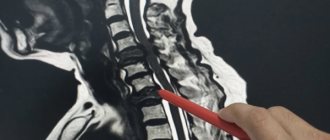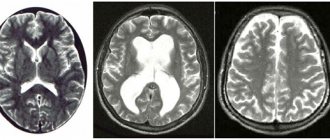The feeling of fear is a natural human reaction to danger. Nature created it to ensure the survival of the human race. However, she also made the life of every creature finite. And often, when thinking about death, people experience strong, sharp fear.
Is this normal? Are there reasonable limits to this feeling? And when does a person’s fear of death become a real threat to his life and health? FAN journalist talked about this with clinical psychologist and psychotherapist Nikolai Chadayev .
Photo from the personal archive of Nikolai Chadayev /
Definition of the concept
What is thanatophobia? Thanatophobia in psychology is a strong fear of death. And you can’t argue with the fact that this is the most acute experience in a person’s life. It affects everyone differently. For some, it is motivation for constant movement forward, an active life position. For others, it is a serious illness with the most serious consequences. In most cases, while solving pressing problems and the frantic pace of life, we simply “forget” to think about death.
Thanatophobia occurs when people feel their life or social status is threatened. Often the fear of death is a consequence of deep thoughts about the meaning of life and existence, the correct choice of the field of activity (creative and professional crisis).
It is interesting that Sigmund Freud spoke about thanatophobia. According to him, there are two opposing forces inside a person: the creative love of Eros and the destructive force of Thanatos. There is always an irreconcilable war between them, which leads to the development of a feeling of fear of death.
Realizing his mortality, a person experiences unprecedented anxiety. He, of course, tries to drive these thoughts away from himself. In this he is helped by a psychological defense mechanism that hides thoughts about death either in the subconscious, or even deeper - in the area of the unconscious.
According to psychologists, pathological fear of death is a difficult to treat disease. The patient is always afraid of dying, every minute. Even when there is no visible threat or danger to his life. The most unpleasant thing is that it is not a passive phobia. It manifests itself in obsessive anticipation of death, depression and other unpleasant symptoms. Sometimes a person does not even understand what caused this condition.
Psychologists distinguish 4 levels of obsessive fear of death:
- Somatic. A person is afraid of physical suffering. He worries about what will happen to the body after he dies.
- Personal. Here it is important for the patient to know what will happen to his consciousness. He is afraid of losing control over himself, being left alone, becoming an inferior and insolvent person.
- Social. At this level, the individual is afraid of the death of loved ones. He doesn't want to lose the relationship he has now.
- Spiritual. People are afraid of the unknown, of what will happen to their soul. They are afraid of disappearing without a trace, possible retribution for their earthly actions, etc.
Interestingly, type 4 thanatophobia most often occurs if a person has a low level of depression, hysteria and other similar disorders. The second is typical for those who are not confident in themselves and their abilities, and suffer from excessive anxiety. Such people find it difficult to cope with the fear of death. It takes hold of them so much that they can no longer lead a full, joyful life. Moreover, their consciousness is paralyzed, so they cannot make quick and effective decisions in critical situations. Over time, the power of thanatophobia becomes stronger and stronger.
The strong fear of death is ambiguous in itself. Some thanatophobes are afraid of the unknown that awaits them after they die. For others, the worst thing is the last days, the suffering before death. It is especially difficult for those who believe in religious teachings about heavenly punishment and inevitable punishment for sins.
Symptoms of thanatophobia
Conventionally, symptoms of fear of sudden death are divided into 3 groups:
- Physiological. These include: trembling in the arms and legs, arrhythmia, rapid breathing, nausea, excessive sweating, chills or fever, disturbances in the functioning of the gastrointestinal tract and even problems in the sexual sphere.
- Mental. We are talking about panic attacks that are almost impossible to control, loss of a sense of reality, depression, and problems with sleep. The patient reacts violently and sometimes inappropriately to the mention of what he is afraid of.
- Emotional. This is increased anxiety, constant tension, unmotivated aggression. Man always avoids talking about death.
Another problem is inhibition of personality development. In particularly serious cases, patients deteriorate.
Separately, it is worth mentioning the symptoms of thanatophobia in creative people. They are very worried about what they will leave behind. Because of this, they are simply obsessed with some super ideas. They become selfish, stubborn, and unresponsive to criticism and the opinions of others. In their thoughts only imminent death.
A severe form of thanatophobia also has its own symptoms:
- Almost complete refusal to communicate with family and friends. Limiting your social circle.
- Loss of efficiency, goals, guidelines, meaning of life.
- Disturbance in the functioning of internal organs and systems.
- The desire to overcome the fear of death with the help of alcoholic beverages or drugs.
- Insomnia, interrupted sleep with frequent nightmares.
Most thanatophobes are lonely. This happens because they withdraw into themselves, behave aggressively and irritably.
Main causes of phobia
Why do some people have a panicky fear of death? The exact reasons have not been fully established, although the main theories of the fear of death are associated with the influence of society and heredity. Many scientists name other reasons for the development of this phobia:
- Personal experience related to the death of someone close to you. The tragedy and despair caused by the loss of a loved one provokes an inexplicable way of disagreeing with death - irrational fear. The fear of death in children, especially preschool age, most often appears precisely for this reason.
- Showing and describing negative events associated with death through the media. Stories about accidents, murders, and disasters cause some people constant painful thoughts about their own death.
- Fear of the unknown or the desire to control everything can provoke a fear of dying. A person is afraid of what will happen after death, since no one knows for sure. He is afraid of what he has no control over, sometimes he is simply afraid of dying in his sleep.
- Thanatophobia can be a consequence of religious beliefs. The fear of sinning, of being subjected to divine judgment, of being punished for one’s unrighteous deeds causes the fear of sudden death.
- The crisis age from 35 to 50 years, when a person experiences painful experiences due to revaluation of priorities, goals, as well as despair due to unfulfilled hopes, all this can provoke the development of a phobia.
- A woman carrying a child before giving birth may be very afraid of death, especially if the pregnancy is complicated or the woman has to raise the child alone. Thanatophobia before childbirth is caused by fear for the unborn baby; the mother worries what the child will do if she is gone.
In old people, in the presence of typical diseases of older people, fears associated with the expectation of death very often intensify.
Causes of fear of death
There is no exact answer to the question of what causes the development of fear of death or thanatophobia. The patient cannot say at what exact moment this oppressive feeling arises. Each situation is individual.
And yet, psychiatrists have identified a number of factors that provoke the appearance of thanatophobia:
- Believers often suffer from this fear. Many religions have teachings about the afterlife, where a person will inevitably face punishment, retribution for all his earthly deeds. Deviation from religious canons is especially severely punished. In this case, it turns out that the fear of death is replaced by the fear of punishment.
- Thanatophobia is the result of fear of the unknown. In most cases, educated people with a high level of intelligence encounter it. They try to understand the essence of death, but they fail. Hence the increased anxiety.
- Another reason for the development of fear of death is a personal crisis. A person analyzes the years he has lived and realizes that he has achieved little of what he planned. Because of this, he is afraid that death will disrupt all his future plans and will not allow him to carry out his plans.
- Those who are accustomed to controlling every area of their life are also very afraid of death. These are overly disciplined, pedantic people. They are afraid that they will have no control over the dying process. They fear both sudden death and aging, as well as what will happen in the so-called afterlife.
- Thanatophobia also develops in cases where a person experiences a serious illness and death of close relatives and friends. Such a tragic personal experience leads to a change in values and priorities. The individual begins to feel differently about life and everything that happens in it. He gets satisfaction from it, but at the same time understands that it can end suddenly. Trying to avoid death, thanatophobes do everything in their power to prolong life. They try to protect themselves from diseases, take care of their health, and lead a healthy lifestyle. And often this behavior turns into pathology.
- The fear of death often arises in overly emotional people. They are easily unsettled by news about any disasters, cataclysms, etc. They vividly imagine these events, as a result of which thanatophobia develops. Some experts believe that the fear of sudden death is the result of zombification, which is successfully carried out by the media. Viewers absorb information about wars and criminal incidents. Some people perceive it normally. A suspicious and overly sensitive person passes it through himself so deeply that he succumbs to the so-called “social hypnosis” and becomes nervous and irritable.
There is another version of why the fear of death appears. Some psychologists believe that this is a completely normal phenomenon that occurs in the process of growth and development of each individual without exception. The only question is what the person will do next. Awareness of mortality confronts him with a choice: to move on or to stop developing and degrade. The first option automatically triggers reflections on the meaning of life and existence.
Symptoms
The diagnosis takes place in the psychiatrist's office. A person needs the help of a specialist if he or she reveals the following pathological symptoms that have been present in the anamnesis for more than six months:
- increased excitability, irritability, nervousness, aggressive behavior, feelings of despair, in especially severe cases, behavior becomes uncontrollable;
- reduction in social contacts, restrictions apply to family and friends;
- continuous anxious thoughts;
- problems with sleep, the patient has nightmares, it is difficult for him to wake up and fall asleep, shuddering when falling asleep;
- the appearance of pseudopain;
- obsession with super-important ideas, unprecedented persistence in achieving them;
- sexual dysfunction;
- alternating periods of apathy and overactivity;
- severe weight loss due to partial or complete loss of appetite;
- professional and vital matters are relegated to the background;
- fixation on a certain scenario of dying, which scrolls through the brain every day;
- the emergence of accompanying fears, which manifest themselves as fear of ghosts, souls of the dead;
- the appearance of an inner voice as a signal from the subconscious.
Physical symptoms of phobic attacks include dizziness, trembling limbs, fainting, and increased sweating.
Thanatophobes are also distinguished by a special attitude towards death. Most patients discuss this topic with pleasure and obsessively, or, on the contrary, are panicky afraid of any mention of it.
Thanatophobia is often accompanied by nosophobia - an uncontrollable fear of a serious illness. Such patients endlessly visit doctors, undergo all kinds of tests and examinations, and undergo comprehensive examinations.
How to get rid of the fear of death
How to overcome the fear of death? First you need to realize that it is impossible to completely get rid of it. It will always be present in your subconscious. The only question is how strongly it will manifest itself.
Treatment of thanatophobia should be comprehensive and include medication and psychotherapy.
Taking medications
This is an effective way to get rid of obsessive bad thoughts with thanatophobia. But the doctor prescribes medications only in severe cases. It is important to combine them with psychotherapeutic treatment methods, the main goal of which is to find the cause of the disease, get rid of destructive attitudes and create a new model of behavior.
Medications used to treat thanatophobia include:
- antidepressants;
- beta blockers;
- neuroleptics.
They help reduce the severity of symptoms of the disease, reduce the number of panic attacks and neuroses.
Psychotherapy
How to deal with thanatophobia using psychotherapy? To help a patient overcome the fear of death, psychologists use the following techniques:
- confrontation;
- internal energy management;
- stimulation of adrenaline production;
- hypnosis;
- desensitization;
- neurolinguistic programming.
What do the listed methods of treatment provide? First, they help change the thinking of a thanatophobe. Secondly, they teach him to cope with stressful situations. And thirdly, they teach him techniques for relaxation, self-control, and maintaining clear thinking even in critical situations. The program for each patient is selected individually.
Hypnosis has proven itself well. Compared to other techniques, it has a number of advantages:
- safety;
- no discomfort for the patient;
- painlessness.
With each session, the severity of thanatophobia symptoms decreases. A person not only gets rid of depression, obsessive fear of dying, and anxiety. He receives motivation for further movement, self-development, and the implementation of some plans and ideas. In addition, recovery processes are launched in his body. The functioning of the heart and blood vessels improves.
Main signs of taphophobia
Signs of taphophobia can be divided into somatic and behavioral. Let's look at each group in more detail.
Somatic symptoms of taphophobia
Somatic manifestations depend on the type of nervous system and the intensity of the response to stress. The list of symptoms varies from person to person, but the most common are the following:
- sweating;
- eating disorders (bulimia, anorexia);
- aggression;
- obsessive thoughts;
- pressure surges;
- cardiopalmus;
- dyspnea;
- headache;
- fainting state;
- vomit;
- nausea;
- muscle pain and tension;
- stool disorder;
- absent-mindedness;
- decreased performance;
- chronic fatigue.
Atypical behavioral reactions
The patient is constantly prepared for sudden death, because of this he prepares a lot of information in case of his death. For example, he writes a suicide note, draws up a will, leaves messages, and gives instructions. He gives this information to those who will bury him in the event of sudden death.
In a panic attack, the patient may furiously ask to be sure of his death before burial. If a person lives alone, then before going to bed he writes a note with instructions and instructions for those who find him. As a rule, a person with a fear of being buried alive asks not to perform an autopsy, to carry out tests that will confirm death, to wait several weeks before burial.
Some taphophobes exhaust themselves with visits to doctors in order to exclude the possibility of falling into lethargic sleep. No matter how strange it may be, they are looking for information about real cases of burial alive, looking at scary pictures and videos.
Independent work - advice from psychologists
Is it possible to cope with the fear of death on your own? It is possible, but only if independent work is part of a comprehensive treatment.
So, you need to understand and accept several important truths:
- Everything in life is cyclical. People are born, live for a certain period of time and die. Remember what Woland said from Bulgakov’s “The Master and Margarita”: “Man is not just mortal, he is sometimes suddenly mortal.” And here we cannot change anything. It is simply impossible to protect yourself 100% from unforeseen situations.
- Relatives and friends always remember the deceased. Fear of the unknown, lack of legacy for descendants, and uselessness is one of the reasons for the development of thanatophobia. Considering this fact, fill your life with good deeds, which in turn will give it meaning. This will help you take your mind off painful thoughts.
- Remember that holding back your emotions will not lead to anything good. So talk about your fears with those you trust. Don't underestimate the support of loved ones.
- The fear of death paralyzes, deprives you of a full life, joy and pleasure. Therefore, learn to leave your comfort zone. Develop, learn, do something new. If possible, go on a trip. An alternative is walking around your hometown alone or with friends. Use life to the fullest.
- Remember that thoughts are material. Negativity sets you up for self-destruction. Fight him. This does not mean that you should constantly be in a state of euphoria and delight. Enjoy every moment of life. Be confident in yourself and your abilities. This will help not only reduce the fear of death, but also get rid of it forever.
Also, to combat thanatophobia, psychologists recommend deciding on a worldview. A clear position in life will help you form your own special view of death. You will understand its nature and inevitability, but it will not frighten you. On the contrary, you will do everything to live your life with dignity.
Features of treatment
Dealing with the fear of death does not have a single strategy. Each patient has his own reasons for the manifestation of the disease and its symptoms. Therefore, a psychotherapist or psychiatrist can help with the study and treatment of phobias. During the appointment, the doctor gets acquainted with the clinical picture of the disease and determines the severity of the disorder.
Subsequent visits to a specialist are aimed at clarifying the “depth” of psychosomatic defects. The initial stages of the disease can be treated without medication.
Methods of cognitive behavioral therapy and neurolinguistic programming are common. In severe forms of the disease, it may be necessary to take tranquilizers and antidepressants. Most often, anxiety and other signs of phobia go away after just 10–15 sessions and one course of medication.
Independent struggle with phobia
The feeling of fear passes quickly if the person himself creates the necessary conditions for normalizing his mental state. It is important to learn to resist a panic attack on your own, controlling your mental activity and not being afraid to ask for help from your loved ones or a psychologist. Experts advise patients:
- Don't isolate yourself with your problems. You should always share them with loved ones or contact specialists.
- Find a way to understand your own values. This will help shift the patient's attention from death to life and its benefits.
- Refuse leisure activities that pose a threat to the psyche. It is important to avoid watching news, movies and TV shows that show or discuss deaths.
- The main thing is to realize that you don’t have to wait for death.
Life and death are components of the human biological cycle. The change from one state to another is a natural process that awaits each of us. During treatment, it is important to tune in as much as possible to pleasant emotions and in every possible way avoid the appearance of any negative thoughts. This is the only way to become stronger than your own fears and learn to control them.
How to overcome the fear of death of loved ones
Like thanatophobia, it cannot be completely eliminated. Yes, and it is not necessary until it turns into an obsession.
Don't get depressed. If a person close to you is seriously ill, your negative emotions will make things worse for both you and him. Therefore, it is better to concentrate on improving his life. Enjoy every minute spent with your loved ones.
Remember that, unfortunately, we cannot control some processes.
Interesting fact
It was said above that the fear of death is a completely normal phenomenon. But some people don't have it. And this is a pathology. These people include:
- those who lack empathy;
- those who do not know how to empathize at all;
- those who have clearly expressed misanthropy (hatred of others);
- persons who lack the instinct of self-preservation have a greatly reduced sense of danger;
- persons with a tendency toward sadism or criminal tendencies.
Such individuals do not enjoy communication. They also often have reduced sensitivity to pain.










